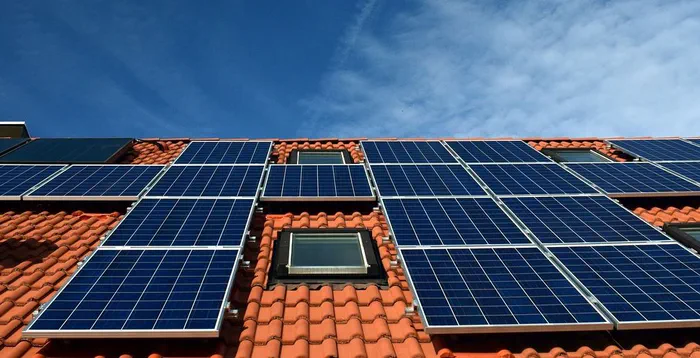The federal solar tax credit, also known as the Investment Tax Credit (ITC), is a dollar-for-dollar reduction in federal income taxes for homeowners who install solar PV systems. This article explains the federal solar tax credit, its eligibility requirements, and how other incentives might affect it.

What is the Federal Solar Tax Credit?
The federal solar tax credit is a percentage of the cost of a solar PV system that can be claimed on federal income taxes. Congress extended the ITC in August 2022, raising it to 30% for systems installed between 2022 and 2032. The tax credit will decrease to 26% for systems installed in 2033 and 22% for systems installed in 2034. The tax credit expires starting in 2035 unless Congress renews it. There is no maximum amount that can be claimed.
Am I Eligible for the Federal Solar Tax Credit?
To be eligible for the federal solar tax credit, you must meet the following criteria:
- Your solar PV system was installed between January 1, 2017, and December 31, 2034.
- The solar PV system is located at a residence of yours in the United States.
- You either own the solar PV system or purchased an interest in an off-site community solar project (subject to certain conditions).
What Expenses Are Included in the Federal Solar Tax Credit?
Expenses eligible for the tax credit include solar PV panels or cells, contractor labor costs, balance-of-system equipment, energy storage devices with a capacity rating of 3 kWh or greater (for systems installed after December 31, 2022), and sales taxes on eligible expenses.
How Do Other Incentives Affect the Federal Solar Tax Credit?
Utility Rebates
Utility rebates for installing solar PV systems are generally excluded from income taxes and are subtracted from your system costs before calculating your tax credit.
Payment for Renewable Energy Certificates
Payments for renewable energy certificates will likely be considered taxable income, but they will not reduce your federal solar tax credit.
State Government Rebates
State government rebates generally do not reduce your federal tax credit.
State Tax Credits
State tax credits for installing solar PV systems generally do not reduce federal tax credits, but they might increase your taxable income on your federal taxes.
The federal solar tax credit is a valuable financial incentive for homeowners who wish to switch to solar energy. By understanding the eligibility requirements and how other incentives affect the tax credit, you can maximize your savings and contribute to a greener future.
How to Claim the Federal Solar Tax Credit
Claiming the federal solar tax credit is a straightforward process. Follow these steps to ensure you receive your tax credit:
- Save all receipts and invoices: Keep a record of all expenses related to your solar PV system installation, including solar panels, balance-of-system equipment, labor costs, and sales taxes.
- Complete IRS Form 5695: To claim the federal solar tax credit, you will need to completeIRS Form 5695, “Residential Energy Credits.” Fill in the required information regarding your solar PV system and the total cost of installation.
- Include Form 5695 with your federal tax return: Attach Form 5695 to your federal tax return (Form 1040 or 1040-SR). The credit amount calculated on Form 5695 will be entered on your tax return, reducing your tax liability.
- Consult a tax professional: If you are unsure about any aspect of claiming the federal solar tax credit, consult a tax professional for guidance.
Additional Resources
For more information on solar incentives, visit theDatabase of State Incentives for Renewables and Efficiency (DSIRE) website. This comprehensive database provides information on federal, state, and local incentives for renewable energy, including solar PV systems.
Conclusion
The federal solar tax credit is an excellent opportunity for homeowners to reduce the cost of their solar PV system installation. By understanding the eligibility requirements, eligible expenses, and how other incentives affect the tax credit, you can make the most of this financial incentive. Be sure to consult a tax professional if you need assistance with claiming the tax credit, and explore additional resources like the DSIRE website to discover more incentives for renewable energy in your area. By investing in solar energy, you’ll not only save money on your energy bills but also contribute to a more sustainable future.
If you found this article helpful, please share it with your friends and family, and don’t forget to subscribe to our blog for more informative content on solar energy and sustainability!



